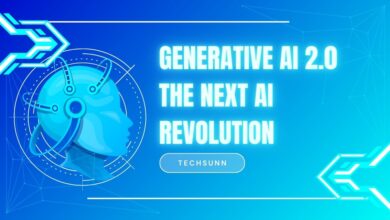Pangu: Huawei’s ChatGPT Rival Reshaping Conversational AI

Huawei is set to introduce ‘Pangu,’ a powerful ChatGPT competitor, to transform the landscape of conversational artificial intelligence. Explore how Pangu aims to revolutionize user interactions and redefine the future of AI.
Introduction:
In a groundbreaking move, Huawei, the renowned global technology leader, has announced its entry into the world of conversational artificial intelligence (AI) with the launch of ‘Pangu.’ As a direct rival to OpenAI’s ChatGPT, Pangu aims to redefine user interactions by leveraging cutting-edge natural language processing algorithms. This article delves into the features and potential impact of Huawei’s Pangu, highlighting its role in revolutionizing the realm of AI-driven conversations.
Huawei, the renowned global technology leader, is poised to disrupt the field of conversational artificial intelligence (AI) with the highly anticipated launch of ‘Pangu.’ As a direct competitor to OpenAI’s ChatGPT, Pangu aims to revolutionize user interactions and redefine the future of AI-driven conversations. Leveraging cutting-edge natural language processing algorithms, Pangu is set to introduce a new era of AI capabilities.
Pangu’s foundation lies in a powerful neural network architecture, enabling it to understand and generate responses that closely resemble human-like conversations. With a deep learning-based approach, Pangu comprehends context, nuances, and intent,
In this article, we will dig further into the critical elements and capacities of Pangu, investigate its expected ramifications, and examine how it might shape the fate of conversational simulated intelligence. Huawei’s introduction of Pangu marks an exciting milestone, paving the way for a new era of AI-driven conversations and unlocking the potential for enhanced user experiences across various domains.
Introducing Pangu: Huawei’s ChatGPT Rival

Huawei’s Pangu is an advanced conversational AI system that utilizes deep learning algorithms to simulate human-like conversations. Based on a brain network engineering, Pangu is intended to comprehend and produce regular language reactions, making it an ideal instrument for different applications, including client care, chatbots, and menial helpers.
The Power of Pangu: Key Features and Capabilities
Enhanced Language Understanding:
Pangu leverages state-of-the-art natural language processing techniques to comprehend user queries accurately. Its deep learning algorithms enable it to understand context, nuances, and intent, thereby enhancing the quality of responses. This allows Pangu to provide more personalized and meaningful interactions with users.
Contextual Understanding and Continuity:
Pangu’s advanced architecture enables it to maintain context throughout a conversation. It can understand and remember past interactions, making the conversation flow more naturally and authentically. This contextual understanding enables Pangu to handle complex queries and engage in more dynamic conversations with users.
Multilingual Support:
Recognizing the global nature of communication, Pangu offers multilingual support, allowing users to engage in conversations in various languages. This capability expands Pangu’s reach and makes it an inclusive AI solution for users worldwide.
Industry-Specific Adaptability:
Pangu’s versatility extends beyond general conversation. It can be customized and adapted to specific industries, such as healthcare, finance, and e-commerce. This adaptability enables businesses to deploy Pangu as a virtual assistant or chatbot tailored to their unique requirements, enhancing customer experiences and improving operational efficiency.
Enhanced Privacy and Security:
Huawei has placed a strong emphasis on privacy and security with Pangu. Conversations are encrypted and stored securely, ensuring user data remains protected. Additionally, Pangu can operate in an offline mode, addressing concerns about data privacy and reducing reliance on cloud services.
Microsoft to Coordinate GPT-4 in Office Programming
The Implications of Pangu’s Arrival
Advancing Conversational AI Technology:
Huawei’s entry into the conversational AI space with Pangu serves as a catalyst for innovation and competition. The development of robust conversational AI systems like Pangu pushes the boundaries of natural language understanding and generation, leading to improved AI models and enhanced user experiences.
Enabling Smarter Virtual Assistants and Chatbots:
Pangu’s advanced features and adaptability provide businesses with an opportunity to create smarter virtual assistants and chatbots. With Pangu’s capabilities, these AI-powered solutions can better understand and respond to user queries, ultimately delivering more accurate and personalized experiences.
Redefining User Interactions:
As Pangu’s adoption grows, it has the potential to revolutionize user interactions across various domains. From customer service to virtual companions, Pangu’s ability to engage in lifelike conversations could redefine the way users interact with AI systems, making them more natural, intuitive, and user-friendly.
Paragraphica: A New Way to See the World
Conclusion:
Huawei’s upcoming launch of Pangu marks an exciting milestone in the field of conversational artificial intelligence. With its advanced natural language processing capabilities, contextual understanding, and industry-specific adaptability, Pangu has the potential to reshape the way we interact with AI systems. As Pangu enters the market, it paves the way for enhanced user experiences, smarter virtual assistants, and a future where AI seamlessly integrates into our daily lives.
Furthermore Huawei’s upcoming launch of Pangu marks a significant milestone in the field of conversational artificial intelligence. With its advanced natural language processing capabilities, contextual understanding, and industry-specific adaptability, Pangu has the potential to revolutionize user interactions and redefine the future of AI-driven conversations.
Lastly In conclusion, Huawei’s Pangu sets the stage for a future where conversational AI systems redefine the way we interact with technology. With its advanced features, adaptability, and commitment to privacy, Pangu has the potential to shape a new era of AI-driven conversations, delivering enhanced user experiences and unlocking opportunities for businesses across industries. As Pangu enters the market, we eagerly anticipate the transformative impact it will have on the landscape of conversational AI.
Frequently Asked Questions (FAQs) ( Pangu )
What is Pangu?
Pangu is an advanced conversational AI system developed by Huawei. It is designed to simulate human-like conversations using deep learning algorithms and natural language processing techniques.
How does Pangu differ from other conversational AI systems?
Pangu distinguishes itself with its enhanced language understanding capabilities, contextual understanding, and industry-specific adaptability. It can comprehend user queries accurately, maintain context throughout a conversation, and be tailored to meet the unique requirements of specific industries.
What are the key features of Pangu?
Pangu’s key features include enhanced language understanding, contextual understanding and continuity, multilingual support, industry-specific adaptability, and a focus on privacy and security. These features enable Pangu to provide personalized interactions, handle complex queries, operate in multiple languages, and ensure the protection of user data.
How will Pangu impact user interactions with AI systems?
Pangu plans to reclassify client connections by making them more regular, natural, and easy to understand. With its lifelike conversations and contextual understanding, Pangu has the potential to revolutionize the way users engage with AI systems, offering a seamless and dynamic conversational experience.




